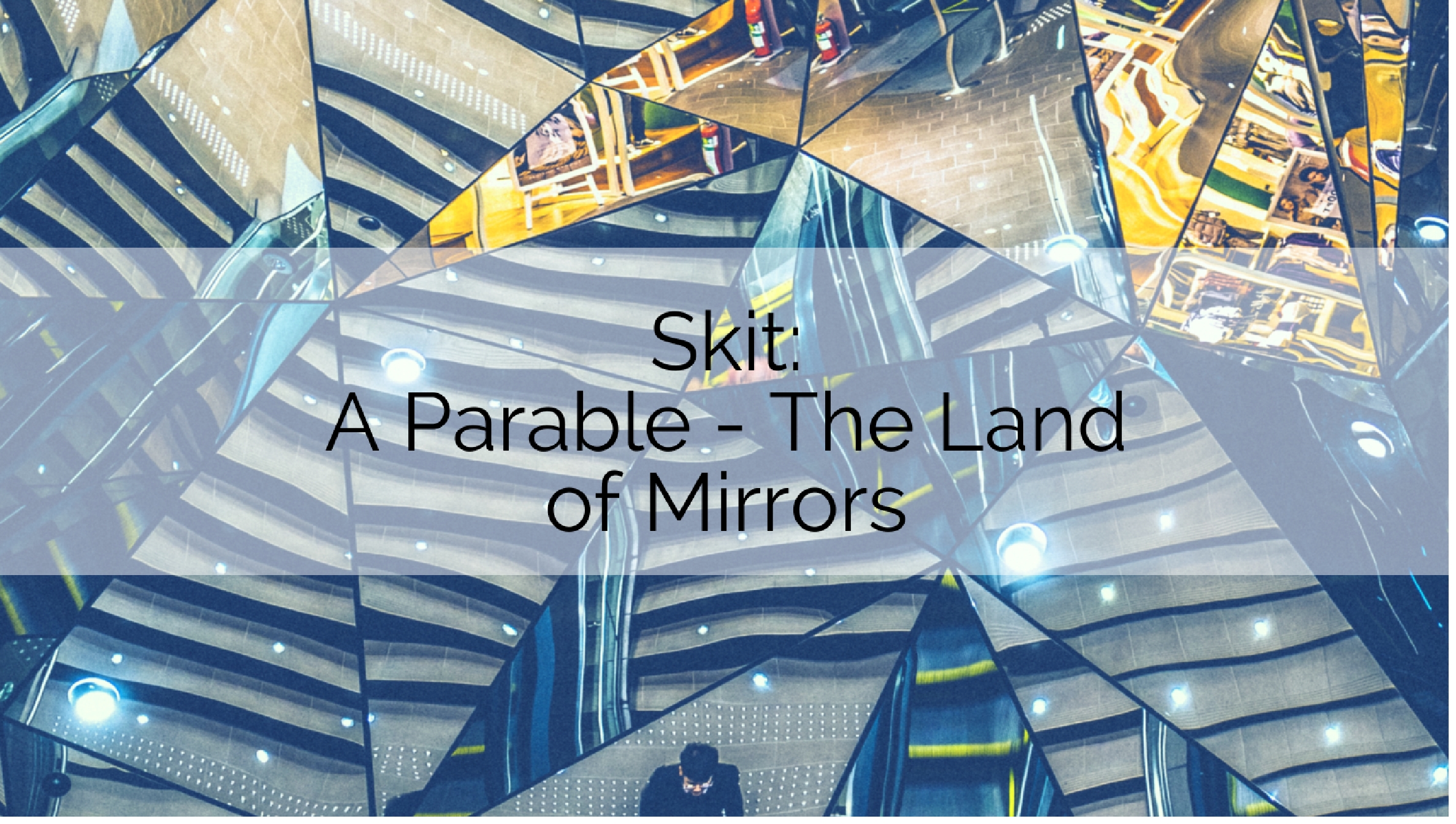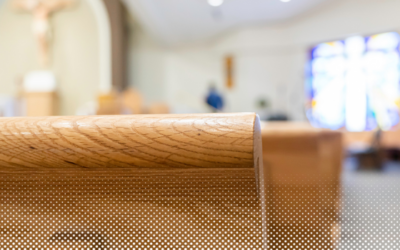You can download a PDF of The Land of Mirrors. If you use it, let us know in the comments!
Themes: Identity, National Youth Gathering
Written by Rev. Dean Nadasdy for the 2004 National LCMS Youth Gathering
(Drama players enter, each carrying a large mirror [2’x3′] and take places on Side Stage. Some mirrors may be in place on the stage. Parabler enters and walks among players as he speaks.)
Parabler: Once there was a land where everyone had a mirror. In the Land of Mirrors, people enjoyed looking at themselves.
1: (looking into his mirror) I enjoy looking at myself. I look really good.
Parabler: Actually he didn’t look that good. He just imagined that he did.
2: (looking into her mirror) Mirror, mirror, in my hand, who’s the fairest in the land? Oh, yes, I agree…”you’re looking at her.”
Parabler: Their mirrors, you see, were covered with soot and dirt and grime. So covered were their mirrors that no image was refl ected in the glass at all. Yet still they looked and stared and said things like:
3: (looking into mirror) Now there’s one fine human being.
4: (looking into mirror) Love those teeth – as white as snow in winter.
Parabler: Actually, his teeth were full of cavities, and he was missing several right up front, but the mirror would never tell.
5: (looking into mirror) What a face! What a body! What a gift!
Parabler: What a joke! Not seeing any image in their mirrors, they used their imaginations instead. They saw what they wanted to see! They fooled themselves. And not a one questioned the other.
4: What you see is what you are.
3: It’s not my place to disagree.
2: Leave well enough alone.
Parabler: And that is what they did. Each was left to their own imagination to see themselves however they wished. It was an amazing thing, how people imagined themselves. Overweight people said,
1: (into mirror) What a hunk! 100% muscle!
Parabler: Not very good looking people said,
2: (into mirror) You look beautiful!
Parabler: Dirty people said,
3: (mirror) No bath in 3 days, but as clean as ever! What’s that I smell?
Parabler: And then it happened. (Shine enters, carrying huge spray bottle, the color of Windex, and a very large rag. He is a frazzled, edgy, hair-askew, “voice in the wilderness” fi gure who never just talks but announces, heralds, and intensely proclaims.) With a loud voice heard across the Land of Mirrors, he proclaimed:
Shine: My name is Shine, and I’ve been sent to clean you up.
Parabler: The people protested.
4: We’re as clean as a whistle.
5: We don’t need cleaning.
Shine: Oh, yes you do! Look at those mirrors!
1: I beg your pardon.
Parabler: Shine smiled and shouted back,
Shine: It’s not my pardon you need to beg. (Rushes from mirror to mirror, spraying and wiping each clean. Fast-speed music can accompany his action.)
Parabler: And then he rushed from mirror to mirror as if racing against time, frantically cleaning each piece of glass with fast forward speed.
2: Who do you think you are?
3: No, who do you think you are?
1: (into mirror) Whoah, you need some work!
2: That’s who I am? I’m not sure I like…
Parabler: When Shine was finished, he stood among them and said,
Shine: You may not like what you see, but that is who you are! Until you see who you really are, you’ll never become what you are meant to be! Until you know the truth beyond imagination, you never will be free! (touches up one or two windows and exits).
Parabler: And then he was gone. It took time, but the people of the Land of Mirrors adjusted to their images, and changed, and grew. In seeing who they really were, they learned who they could really be and in knowing the truth beyond imagination, they were set free. Their mirrors became windows to what is and what can be.






0 Comments